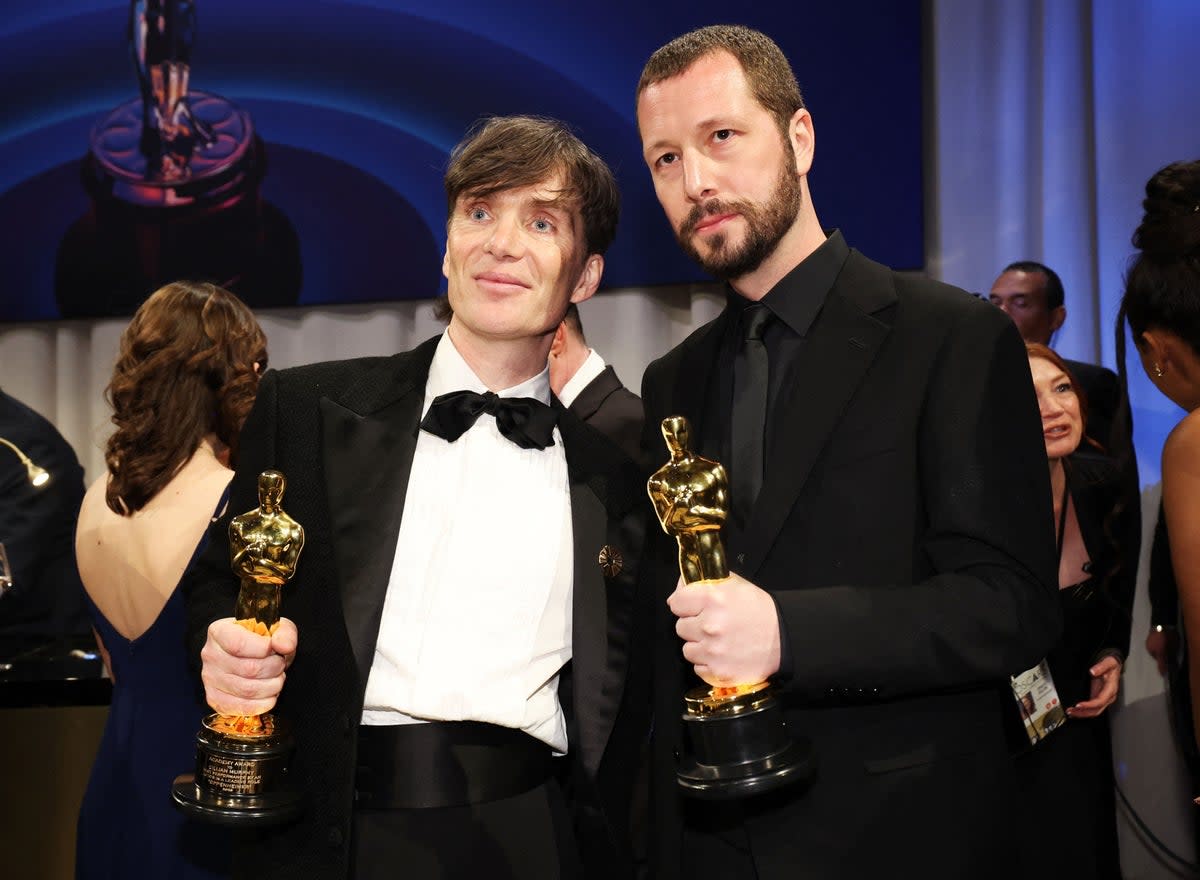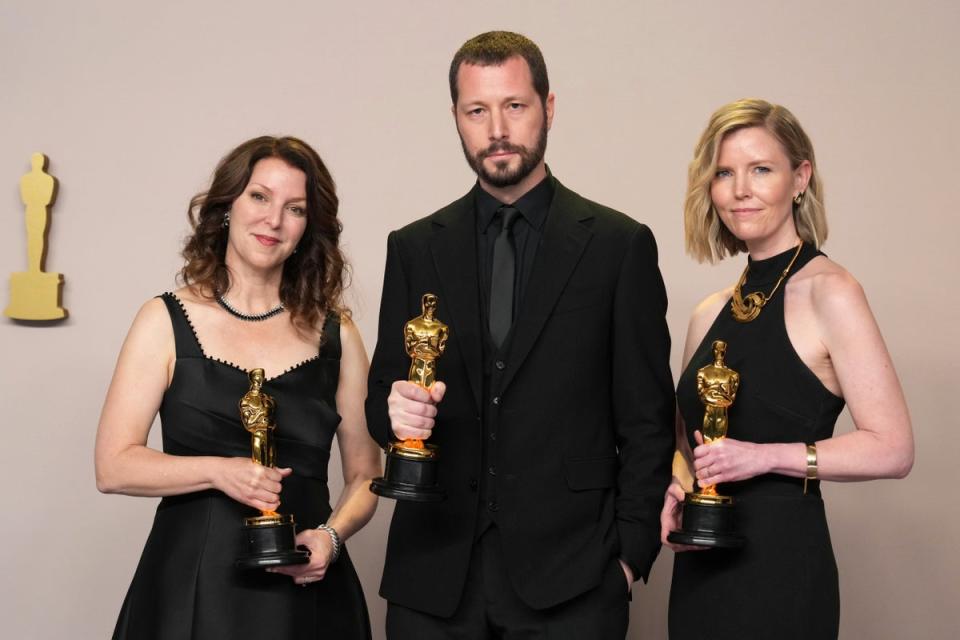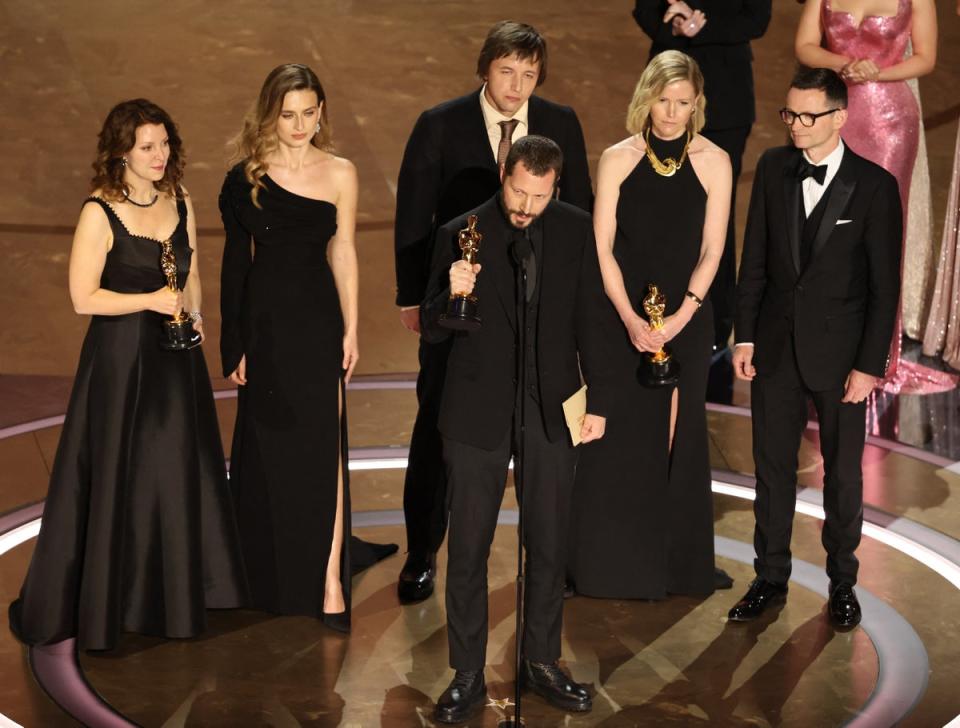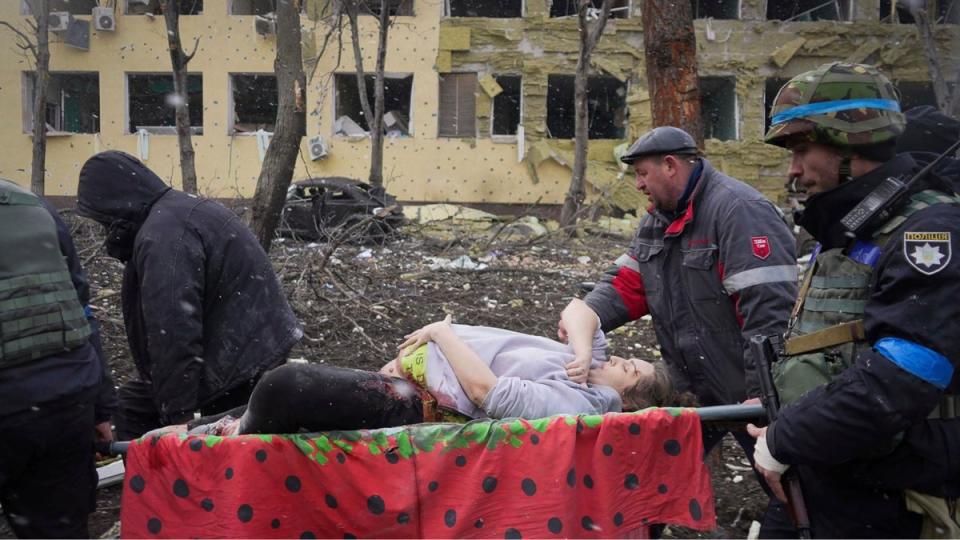Ukrainian Oscar winner Mstyslav Chernov: ‘I am the first director to admit I wish I never won this award’

A Ukrainian director who has won his country’s first Academy Award has admitted he would trade the Oscar in a second if it would stop the Russian invasion of Ukraine.
Mstyslav Chernov, a Ukrainian journalist, was given a standing ovation last night after winning Best Documentary Feature for his film 20 Days in Mariupol. During his acceptance speech, he called on his fellow Academy Award attendees to help set the history books straight in the face of Russian propaganda.
"This is the first Oscar in Ukrainian history, and I’m honoured," Mr Chernov said. “But probably I will be the first director on this stage who will say I wish I never made this film. I wish to be able to exchange this to Russia never attacking Ukraine, never occupying our cities.
“I wish to give away all the recognition for Russia not killing tens of thousands of my fellow Ukrainians. I wish for them to release all the hostages, all the soldiers who are protecting their lands, all the civilians who are now in their jails.”
In a call to Hollywood, he added: “I cannot change history. I cannot change the past. But you are some of the most talented people in the world and we can make sure that the history record is set straight and that the truth will prevail, and that the people of Mariupol and those who have given their lives will never be forgotten. Cinema forms memories; memories form history.”
Setting the history record straight is exactly 20 Days achieved.
Mr Chernov, alongside photographer Evgeniy Maloletka and field producer Vasilisa Stepanenko, documented the harrowing scenes of Russia’s occupation of Mariupol while Russia insisted the takeover was not targeting civilians.
The trio’s footage showed a father crying over the body of his 16-year-old son, who was hit by a Russian missile in Mariupol while playing football with his friends. They showed a frightened and wounded pregnant women being pulled out of a maternity ward, minutes after the building was hit in an airstrike. And they showed the first sighting of a Russian tank - the letter “Z” plastered on its side - turning its turret toward the top floor of a hospital as Moscow’s forces took over the southern Ukrainian city.
They left only after they were forced into using the humanitarian corridor out of the besieged city as the Russians were closing it. Those left behind have been living under Russian rule ever since, for nearly two years.
For Mr Chernov, who also wrote the documentary, the Oscar will never just belong to him or his colleagues, but rather the residents who have suffered through Russian occupation.

“I owe this to the people of Mariupol,” he told The Independent, in a sit down interview a day after the Oscar nomination was announced earlier this year. “This is their Oscar nomination; it is not mine. And if it ever gets recognised as highly as an award, that will be for them as well.”
Chernov, Maloletka and Stepanenko have been praised for bearing witness to some of the earliest records of Russian atrocities during its full-scale invasion of Ukraine – even if Russia still denies they ever happened.
A day after the trio left Mariupol, Russia fired two 500 kg bombs on the city’s drama theatre, killing hundreds of people, including many children, who had gathered in what had then become one of the largest shelters in the city.
It remains one of the deadliest attacks since the war in Ukraine began. An AP investigation, for which Chernov played an instrumental role, suggested that 600 people were killed in the hit.
Amnesty International, having conducted another investigation, concluded that the strike was “a clear war crime committed by Russian forces ... deliberately targeting Ukrainian civilians”.

The Russian defence ministry still blames the Azov Regiment, a Ukrainian outfit that defended Mariupol until its fall in May that year, without providing evidence. The AP investigation has found that none of the witnesses saw Ukrainian soldiers operating inside the building.
In a later statement, the UK ambassador to the Organization for Security and Co-operation in Europe (OSCE), one of the continent’s principle human right’s body, cited the Mariupol theatre strike as it pledged to “not become numb to the suffering caused by Russia's illegal invasion”.
Chernov and his team may not have been present for that attack, but Russia’s habit of denying its role in atrocities, as well as the frequency of its deadly strikes, has shown the value of 20 Days in Mariupol. The attack also happened nearly two years to the day of the Oscar victory.
Some day, Chernov hopes, the documentary will be shown in that reconstructed theatre.
It is this sentiment that highlights the Ukrainian filmmaker’s undying drive not just to do the job of holding Russia to account, but also to honour those that he has filmed.
“Every single person we met during those 20 days did something for us to be able to be where we are right now,” he said.

He mentioned the special evacuation force that rescued him and his team from a hospital behind the front line on the left bank of the city. He also mentioned the civilians that shared their food, water and shelter with them during the 20 days, many of whom are still in Mariupol.
And he mentioned Volodymyr, the Ukrainian policeman that throughout the film is seen protecting and motivating the photographers to keep documenting what was happening. He first appears on screen after Chernov films the aftermath of Russian strikes on the Mariupol maternity ward; multiple pregnant women, we later find out, died as a result of the attack.
“I think Volodymyr understood the importance of those images even more than us,” Chernov said. “The fact that he is a policeman - he has the mind of someone who knows the law - he recognised the importance of getting the original files out of the city, that they may be used for trials.
“He was kind of a moral drive for me because at some point, you feel so powerless. You cannot stop a bullet with a camera. You cannot stop catastrophic bleeding while you are taking a picture. You do feel at moments that you are not making a difference.
Volodymyr, the hero of the "20 Days in Mariupol," was injured yesterday in Pokrovsk.
He is the police officer who saved our lives helping to escape from the besieged city. Hang in there, my friend. Mariupol is waiting for your return.#Mariupol #20daysinmariupol #Documentary pic.twitter.com/U8mOd2XPlO— Мstyslav Chernov (@mstyslavchernov) August 8, 2023
“So, his words, his reassurances, his dedication to the mission, just to get us and those images out, really helped us to survive.”
Volodymyr would eventually volunteer to drive the journalists, alongside his family, through a perilous green corridor out of Mariupol on day 20. They passed more than a dozen Russian checkpoints on that journey, trying to catch up with the last Red Cross convoy that left hours before. At each checkpoint, Volodymyr risked his life.
But the policeman returned to work soon after the evacuation. And in August this year, Chernov says the policeman was injured while evacuating a civilian in the eastern Ukrainian town of Pokrovsk, roughly 30 miles from the frontline.
He was hit by a Russian double-tap strike, Chernov said, which is when a second rocket is fired at emergency workers rescuing those injured in the first hit.
“He got multiple shrapnel injuries to his lungs and the rest of his body,” Chernov said. “He is recovering at the moment. He is slowly coming back to the surface.”
Like Volodymyr, Chernov did not hesitate to go back to work after leaving Mariupol. He wasted no time investigating the Mariupol theatre strike, recreating what happened inside the theater on that day using the accounts of 23 survivors, rescuers, and people intimately familiar with its new life as a bomb shelter.
For him, his job is simple, whether or not he is an Oscar winner. “I have to keep covering news, daily news in Ukraine,” he said. “That is my primary task.”

 Yahoo News
Yahoo News 
